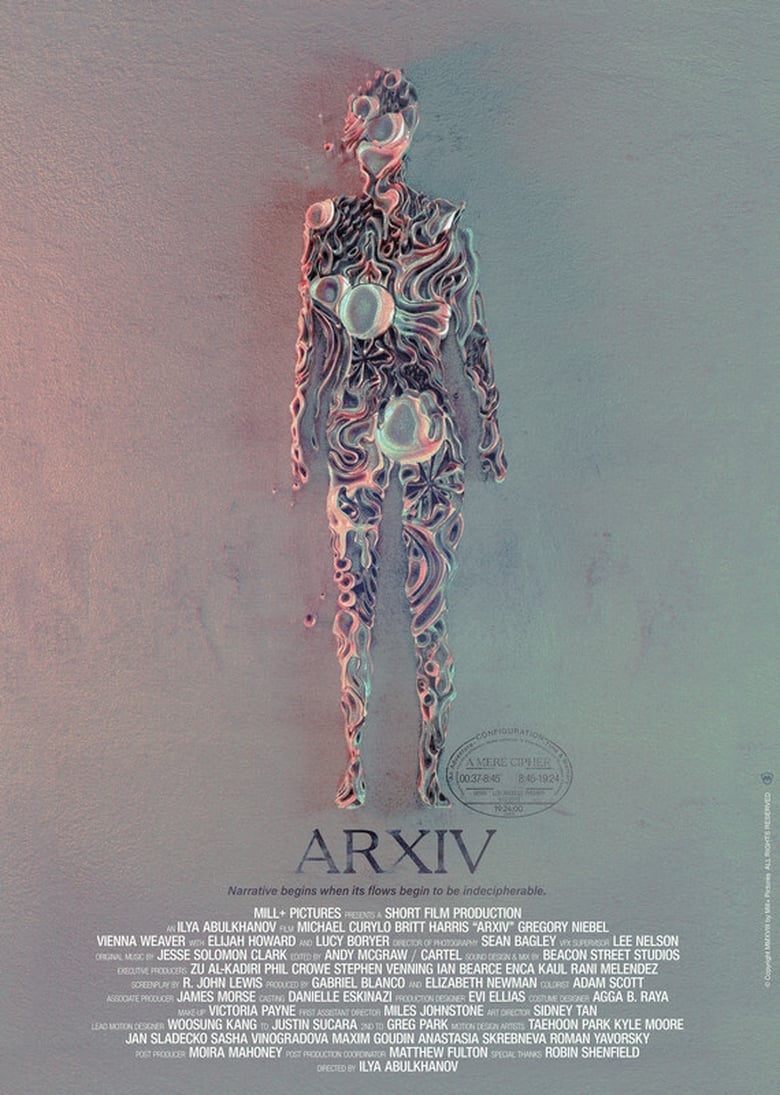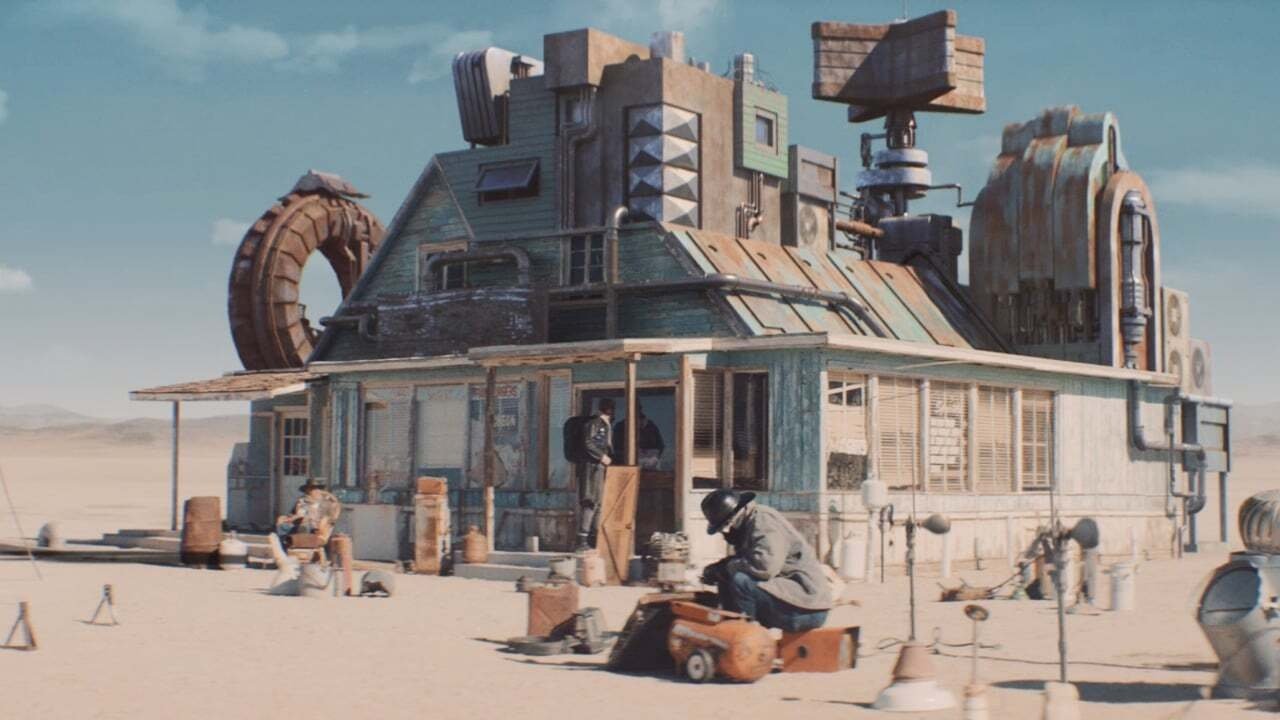
ARXIV
A sci-fi family drama is set in two time frames: the deep future, that is left with no future, and the near future, that will bring about the eventual dystopian collapse of society. Protagonist Lew Aron survives both time frames and is set to discover a potential outlet to confront his innermost desire, or what’s left of it.
LittleGravitas@LittleGravitas
I read an ASC Short Takes article on this sometime last year and must've bookmarked the Vimeo page for later perusal. That later is now.
ARXIV over-relies on CGI, something I find irritating especially when it's sloppy—as is frequently the case here. It's possible to tell a good science fiction story without decadent levels of production design. If a unique style one of a film's major facets, go ahead. Otherwise, I'd argue it's preferable to tone things down.
It doesn't help that they stuck with a generic Blade Runner/Star Wars sequels aesthetic. If there's one thing I did appreciate, it is their tendency to model technology for aesthetic appeal and not futurological "accuracy." Consider the clinic receptionist's antique accounting machine and the office's square, mid-aughts IPS displays. There is precedent for this in what ARXIV imitates, think the 50s jalopies in Blade Runner encrusted with greebling and Star Wars' fixation with bladed weapons. It's something few imitators pick up on, let alone do well, in my experience.
Very nice cinematography, especially given the five-day (preproduction? shooting?) crunch the article mentions. Their use of different LUTs, film stocks, and cameras/lenses for each time period adds emotional flavor and subtly demarcates them for what would otherwise be a pretty confusing viewing experience.
Unfortunately, as far as I can grasp, the plot is a cliché mess, the dialogue is weak, and the acting is wooden (Dr. K's monologues, Lew's conversation at work, the phone call in the car, etc.). The _La Jetée_ homage at the end was nice though.
